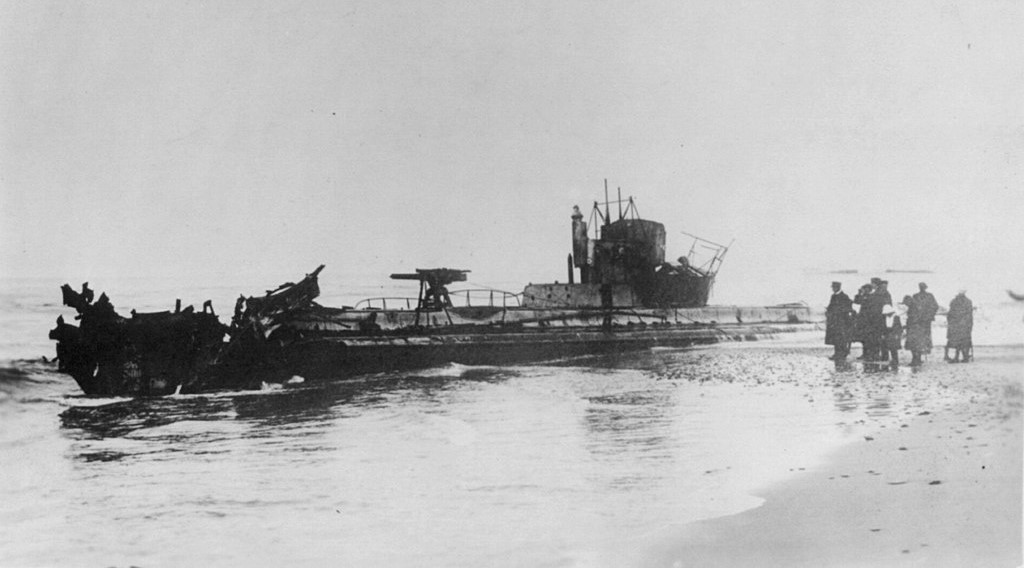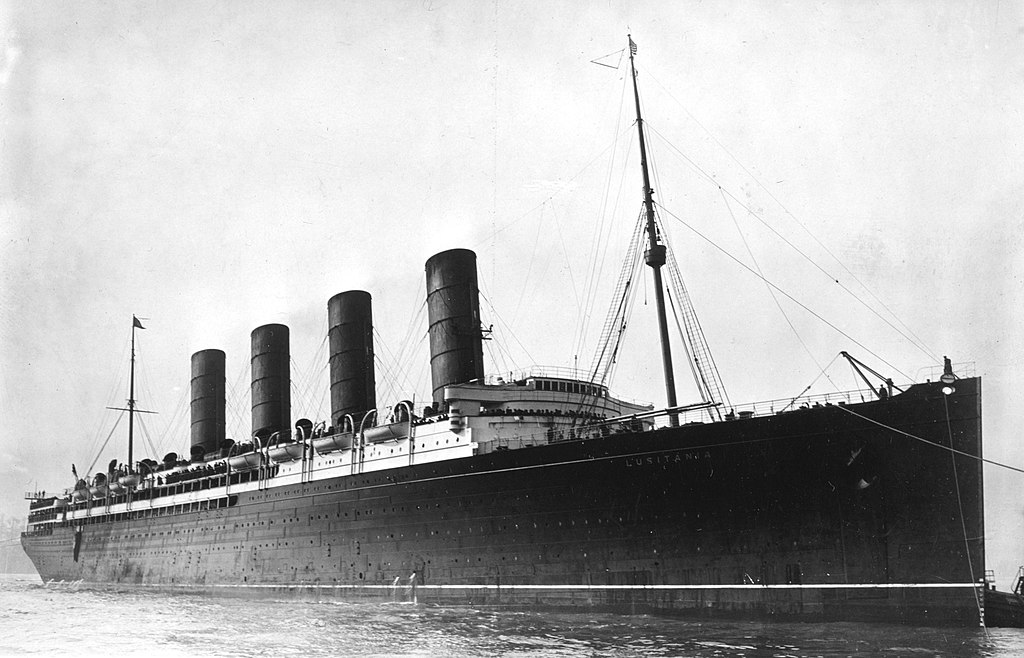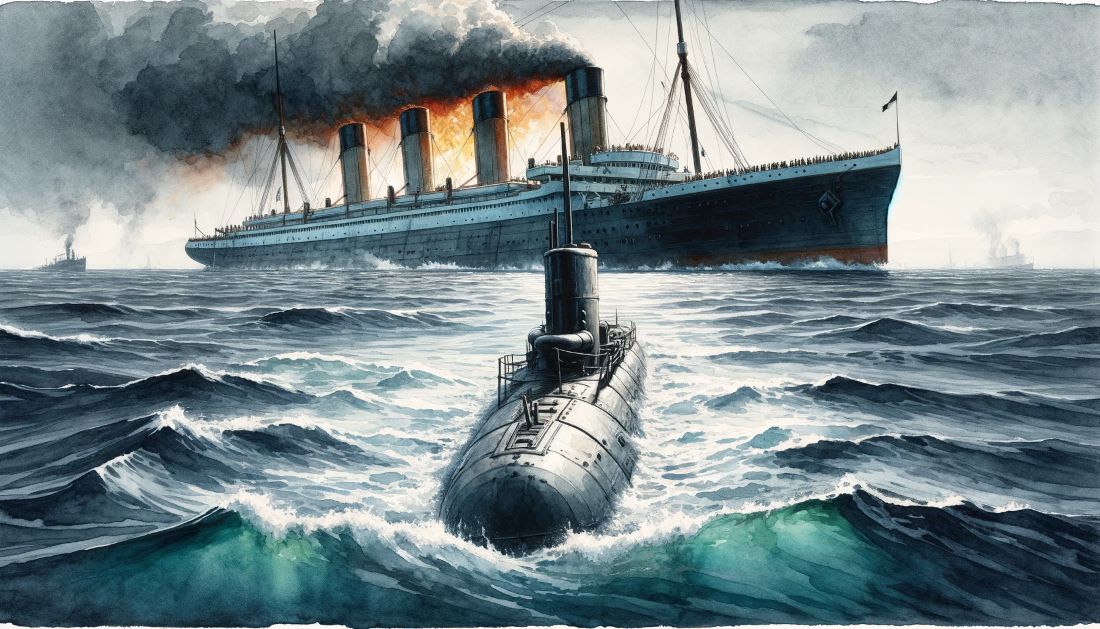The Sinking of Lusitania in May 1915 marked a pivotal moment in World War I, sending shockwaves across the globe. As the British ocean liner met its tragic end by a German U-boat, the event not only claimed the lives of 1,198 civilians but also dramatically shifted public opinion and drew countries closer to the brink of worldwide conflict. This catastrophe underscored the brutal reality of modern warfare and its far-reaching impacts beyond the battlefield. Analyzing the sinking of Lusitania offers insight into the complex interplay of military strategy, international relations, and propaganda during a time of unprecedented global tension.
Objectives of Germany’s Blockade Strategy
In the early stages of World War I, Germany aimed to impose a comprehensive maritime blockade against the British Isles, a strategy driven by several key objectives. Primarily, Germany sought to cripple the British economy and military capacity by cutting off essential supplies, including food, military equipment, and raw materials. By doing so, they hoped to weaken Britain’s war effort and morale, thereby forcing a swift resolution to the conflict in favor of the Central Powers. Additionally, Germany intended to disrupt the Allied supply lines and demonstrate their naval superiority, challenging Britain’s long-standing dominance at sea.

As the war progressed, the German blockade strategy evolved, reflecting the dynamic nature of the conflict and the increasing desperation of the German High Command. The unrestricted submarine warfare campaign, which targeted not just military vessels but also civilian ships, was a testament to Germany’s determination to bring Britain to its knees. This aggressive approach aimed to maximize the blockade’s impact by sinking as much tonnage as possible, regardless of the international laws and the potential diplomatic repercussions. Germany believed that by intensifying the blockade, they could hasten Britain’s economic collapse and force the Allies into negotiations, ultimately securing a favorable outcome for the Central Powers.
The Ill-Fated Voyage of Lusitania
The RMS Lusitania was a marvel of early 20th-century engineering, a testament to human ingenuity and the spirit of the age. Launched in 1906 by the Cunard Line, this British ocean liner was among the largest and fastest vessels of its time, stretching nearly 790 feet in length and capable of carrying approximately 2,000 passengers and crew. It was renowned for its luxurious accommodations and speed, having captured the prestigious Blue Riband for the fastest Atlantic crossing. The Lusitania was a symbol of national pride and a floating emblem of the technological and industrial progress of the era.

On the fateful afternoon of May 7, 1915, the Lusitania met its tragic end at the hands of German forces. Commanded by Captain Walther Schwieger, the German submarine U-20 spotted the Lusitania off the southern coast of Ireland. Despite the U-boat’s slower speed when submerged, a fateful turn by the Lusitania brought it directly into the path of the waiting predator. Schwieger seized the opportunity and launched a single torpedo that struck the center of the ship. The aftermath was catastrophic: the liner sank in a mere 18 minutes, leaving little time for a successful evacuation. Of the nearly 2,000 souls aboard, 1,198 perished in the disaster, including 785 passengers and 413 crew members, with almost 100 children and 128 American citizens among those who lost their lives.
Echoes of the Lusitania Tragedy
The sinking of the Lusitania resonated deeply across the world, stirring a maelstrom of emotions and escalating tensions among the warring and neutral nations. In Allied and neutral countries, the public reaction was one of horror and outrage. The event was perceived as an act of straightforward mass murder, an egregious violation of the laws of war and human decency. In Britain and its dominions, this sentiment manifested in violent riots and the looting of German-owned shops, with the most severe unrest occurring in Liverpool, a city closely tied to many of the Lusitania’s crew members. The collective grief and anger further solidified the British resolve against Germany, casting the Central Powers in an irredeemably villainous light and inflaming a desire for retribution.

The reaction in the United States was equally significant, albeit more measured initially. President Woodrow Wilson found himself under immense pressure as public opinion turned vehemently against Germany. His response, a series of stern diplomatic notes to the German government, denounced the sinking as an illegal act and a grave affront to “the rights of humanity.” While the U.S. remained officially neutral for some time after the incident, the seeds of involvement were sown. The American public’s sentiment began to shift, and the isolationist stance became increasingly untenable. In Germany, the incident was met with a mixture of justification and denial, as military leaders attempted to frame the attack as a legitimate act of war against a vessel carrying munitions. However, this defense did little to quell the international uproar. The sinking of the Lusitania became a symbol of German barbarity, a powerful tool in Allied propaganda, and a pivotal factor that eventually led the United States to join the conflict, reshaping the war and the world.
Historical Challenge: Can You Conquer the Past?
Answer more than 18 questions correctly, and you will win a copy of History Chronicles Magazine Vol 1! Take our interactive history quiz now and put your knowledge to the test!

